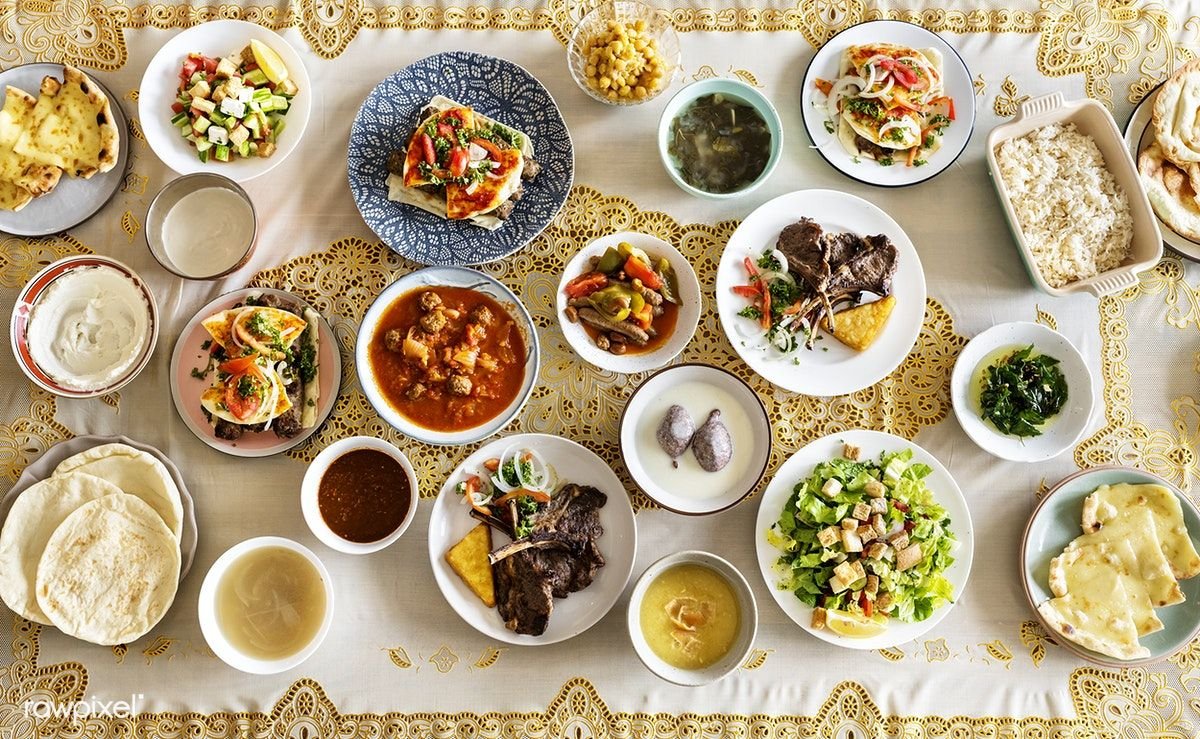The holy month of Ramadan is a time of spiritual reflection and devotion for people around the world. It is a time of fasting, prayer, and devotion to acts of charity and kindness, but perhaps one of the most important moments of Ramadan is the breaking of the fast at sunset, which is known as Iftar.
Iftar is a time to celebrate, gather with family, friends, and relatives to share blessings of the holy month. It is a time to reflect on the blessings of Allah and ask forgiveness for our sins.
In this article, we will dive into the origin, its meaning in Islam, and the spiritual and physical benefits of this Islam.
The Origin of Iftar
The Iftar tradition has its roots in the time of Prophet Muhammad and his companions. According to tradition, the Prophet broke his fast with a simple meal of dates and water, often shared with his closest companions. Over time, this meal has evolved into a wider variety of dishes and has become a community event where Muslims gather to break their fast and share in the blessings of Ramadan.
Although iftar’s origins are humble, food has acquired special importance in the world. It is a time of generosity and hospitality, a time to share food and blessings with those around us. It is also a time of spiritual renewal, a time to connect with Allah and ask forgiveness for our sins.
The Significance of Iftar
The significance of Iftar in Islam cannot be overstated. It is a moment of communal celebration, of coming together with family, friends, and neighbors to break bread and share in the blessings of the holy month. It is also a moment of spiritual renewal, a time to reflect on our relationship with Allah and to seek forgiveness for our sins.
In addition to its spiritual significance, Iftar also holds a special place in Islamic culture as a moment of generosity and hospitality. Muslims are encouraged to invite others to break their fast with them, to share in the blessings of the holy month and to strengthen the bonds of community. In many Muslim-majority countries, Iftar is a public event, with communal meals and festivities held in public squares and other public spaces.
The Spiritual and Physical Benefits of Iftar
The spiritual and physical benefits of Iftar are numerous. From a physical perspective, breaking the fast with a nutritious meal can help to replenish the body’s energy stores and promote healthy digestion. It is also an opportunity to eat mindfully and reflect on our relationship with food.
From a spiritual perspective, Iftar offers people a moment of spiritual renewal and connection with Allah. It is a time to seek forgiveness for our sins, to deepen our connection with our faith, and to reflect on the blessings of the holy month. It is also a time to strengthen our bonds with our community, to share in the blessings of Ramadan, and to practice the values of generosity and hospitality that are central to our faith.
The Relevance of Iftar in the Quran
Iftar is not just a cultural tradition; it is deeply rooted in Islamic scripture and tradition. In the Quran, Allah commands Muslims to break their fast at sunset “And eat and drink until the white thread of dawn becomes distinct to you from the black thread, then complete the fast until the sunset” This verse emphasizes the importance of following the natural rhythms of the day and night and of being mindful of one’s physical needs.
Furthermore, the Prophet Muhammad himself is reported to have broken his fast with dates and water, in accordance with the Islamic tradition. He also encouraged people to invite others to share their Iftar meals, as a way of promoting kindness and hospitality.
Conclusion
Iftar is a moment of great significance and symbolism in Islamic tradition. It marks the end of a day of spiritual discipline and reflection and the beginning of a communal celebration of faith and unity. From its humble origins as a simple meal of dates and water, it has evolved into a grand feast, a symbol of generosity and hospitality, and a moment of spiritual reflection and prayer.
As we enter the holy month of Ramadan, one must reflect on the significance, and the role it plays in the spiritual and communal lives. It is important to strive to embody the values of generosity, hospitality, and unity that Iftar represents, and let us use this moment of spiritual renewal to deepen our connection with Allah.


1 thought on “Iftar: A Celebration of Unity and Generosity”